There are multiple queries that arise in minds of a newbie digital marketer! Some questions may be: what is the difference between online marketing and offline marketing, which channels should I choose for my business, how can I get more leads or customers? These questions have been answered by various professionals with different opinions. Let’s discuss some queries on digital marketing!
Let's See the Topic Overview
Q1: Is Digital Marketing Replacing Traditional Marketing?
Digital marketing is impacting traditional marketing in a way that’s never been seen before. With the advent of the internet, many industries have seen tremendous growth. From traditional advertising to search engines, social media, there’s been an increase in demand for services, products and the overall market.
With the rise of digital marketing and the increase in spending on advertisements, it has become more difficult for traditional marketing to compete. Despite the fact that digital marketing possesses much more reach and efficiency than traditional, many marketers still have their doubts about whether or not it will ever be able to replace traditional marketing. Many believe that digital marketing will eventually replace traditional marketing, it’ll take some time before this happens.
It’s important that you understand what kind of goals your company wants to achieve with its marketing strategy. If you’re trying to create brand awareness, then it might be best to use a more traditional approach. On the other hand, if your goal is simply increasing sales, then digital marketing might be your best choice.
Q2: What is Digital Marketing in Easy Words?
Digital marketing is a set of practices designed to bring about strategic, measurable, and sustainable changes in companies’ sales, web traffic, and profits by using the Internet.
It’s not easy to explain what digital marketing is without explaining how it works. A lot of people still don’t know what digital marketing actually does or why it is so successful.
Q3: What is a Digital Marketing Strategy?
A Digital marketing strategy refers to the process of creating an integrated approach to brand management and customer acquisition through multiple digital channels. This includes ensuring maximum exposure for your product, providing clear value propositions, utilizing content marketing experiences and personalized branding.
Q4: What Percent of Marketing is Digital?
Do you know what percent of the market digital is? According to the latest digital marketing statistics, expenditure on online marketing will make up 46 percent of the total global ad spending in 2021 (WebStrategies Inc, 2020).
Do you want to know how much of the digital market is controlled by companies like Google, Facebook, and Amazon? The answer is a lot! These companies are controlling more than 90% of all online traffic. And they’re not the only ones. Other major players in the digital market include Apple, Microsoft, and Amazon. These companies are responsible for a large part of what we see online.
Q5: What are the Disadvantages of Digital Marketing?
There are multiple disadvantages to using digital marketing. Some of these include the following:
- You can’t control the outcome of your marketing campaigns.
- Your marketing is limited to a small number of people who are well-connected and have access to the latest technology.
- Your marketing is often expensive and time-consuming.
- You may not be able to achieve the results you want if you use traditional marketing methods.
Q6: Is Digital Marketing More Effective than Traditional Marketing?
Have you ever wondered if digital marketing is more effective than traditional marketing? If so, it may be time for you to ask yourself the question again. It’s not easy to determine what the best method is, but here are some factors that can help you make a decision.
First of all, let’s consider the fact that online marketing has become more and more popular over the years. According to data from 2013, there was an increase in online advertising spending from $37 billion in 2010 to nearly $130 billion by 2013. This means that digital marketing is having a significant impact on society as a whole and how consumers buy products. In addition, there is also data that shows how effective digital marketing is compared to traditional marketing. According to the 2016 Report on Marketing Analytics by Business Insider Intelligence, digital media has a four times greater influence on consumers than traditional media. Digital advertising’s reach had 5% higher click-through rates and 1% better conversion rates than traditional.
As marketing continues to evolve, digital marketing is on the rise. It’s becoming more widespread and popular for businesses of all sizes. Here are some of the benefits of digital marketing:
- You can target a huge audience with pinpoint accuracy
- You can create content in minutes
- It’s easy to measure ROI
- The cost is much lower than traditional marketing methods
- It puts your company in front of new customers who may not have heard about you otherwise
- Digital marketing has a shorter life cycle than traditional methods.
With the rise of technology, marketing has shifted and changed to be more digital than ever. One downside is that it can be harder to measure the effects of digital campaigns. Another downside is that it’s often difficult to implement traditional marketing strategies in order to use data from digital activities.
| Note |
|---|
| Digital marketing is a large and growing field that combines various forms of electronic communications. The term digital marketing refers to marketing activities that use digital technologies to connect with customers and prospects in the online world through the use of websites, social media, mobile apps, email campaigns, search engine optimization (SEO), etc. |
Q7: What is SEO in Digital Marketing?
Search engine optimization is the process of getting your website or content to rank high on search engines like Google and Bing. In order to achieve this, you need to create a strategy that includes ranking factors such as keyword usage and backlinks. These ranking factors then influence how well a website performs in searches, with higher rankings resulting in better visibility in search results with more traffic and more conversions. However, it’s difficult knowing whether your SEO strategy has been successful or not – there are different methods for achieving this.
Why Need SEO Specialist for a Business Growth
Search engines offer websites their position on the first page by determining which websites are most relevant to a given search query. SEO is one of the most important marketing strategies used by small businesses and large corporations alike. The goal of SEO is to increase the number of visitors to the website or web page.
There are two types of SEO (Organic SEO & Paid SEO); search engine’s unpaid results—often referred to as “natural”, “organic” or “earned” results. In contrast, paid search advertising seeks to influence which websites are listed for particular keywords in an attempt to make money. Search engine optimization is an umbrella term for all forms of digital marketing; specifically aimed at increasing the number of visitors on websites. There are many people who believe that SEO and PPC should be used together in order to drive more traffic and revenue.
Q8: What are the Major Differences Between Traditional Marketing and Digital Marketing?
Marketing is a broad term that includes a number of different methods for promoting products or services to increase the likelihood of the desired action. With digital marketing, it is important to use software and technology in order to reach new customers and prospects who don’t have a certain preference for your product.
The goal of marketing is to engage customers and generate sales. Digital marketing utilizes the internet for this purpose. It’s about reaching out to potential buyers, positioning your brand as a solution to their problem, and then leading them down your sales funnel. The goals of traditional marketing are much more broad-based. Marketing can be used to grow an existing business, but it also includes gaining new customers and identifying areas in need of improvement.
The biggest difference between traditional marketing and digital marketing is how they’re structured. Traditional marketing still relies on mass communication channels like print ads, radio ads, billboards, TV commercials, and large-scale events such as trade shows whereas digital marketing is based on individualized customer interactions like social media, search engines, email campaigns, website analytics, etc.
In addition to this distinction in structure, there are also different types of content that each method is used for. For instance: traditional marketing uses commercial advertising while digital marketing uses editorial content or blog posts to promote a product or service.
Q9: What is Traditional Marketing and Which is Similar to Traditional Marketing?
Traditional marketing is all about creating an emotional connection with your target audience. It involves creating a memorable slogan, designing a persuasive ad, and using effective storytelling to sell your product or service. However, there are several other ways to market your business, and they can be just as effective at reaching your target audience. You just need to figure out which type of marketing works best for your business.
Traditional marketing is based on the idea that people are naturally drawn to things that are similar to them. This means that companies use stereotypes and old ways of thinking to create sales and market their products. For example, many companies use the following approach when marketing their products:
- They advertise in newspapers
- They target specific demographics
- They set a price for their product and sell it at a low cost
- They use discounts and other marketing strategies.
Q10: Why Traditional Marketing is Better than Digital Marketing?
There are lot of debate on the best way to market a company. Some people believe that traditional marketing is better than digital marketing because it’s more personal and it gives you a sense of control over your story. Others believe that digital marketing is better than traditional marketing because it’s more efficient and it allows you to reach a wider audience. We decided to take a closer look at the pros and cons of each type of marketing and see which one would be better for your business.
In today’s digital world, it’s more important than ever to go beyond traditional marketing techniques. But what does that mean for your business? For one, it means you need to invest in digital marketing techniques if you want to be successful in the 21st century. Digital marketing is all about using technology to reach and engage your target audience. It involves creating a plan and strategy that uses digital channels (such as social media, search engines, and email marketing) to promote your product or service.
Traditional marketing doesn’t always work as efficiently or effectively in the digital age. For one, you can now reach a larger audience with less effort. You also don’t need as much manpower to market your product or service – many businesses can now do it all through technology. Additionally, traditional marketing doesn’t always reflect the latest trends in fashion and gaming. So if you want to stay ahead of the curve, you need to invest in digital marketing techniques.
Traditional marketing is better than digital marketing because it’s more human-centric. A traditional marketing campaign is designed around the needs of the customer, rather than just smashing the target market with a big advertising budget. It also has a track record of working for multiple years, and often has a history of being successful in the market. Digital marketing, on the other hand, is new and constantly evolving. It’s constantly changing and may not be as effective in the long run. Additionally, digital marketing can be expensive to set up and maintain.
There are a lot of reasons why traditional marketing is better than digital marketing. Here are just a few:
- Traditional marketing can be more cost-effective: A traditional marketing campaign costs more, but it can often be more effective. For example, a billboard or TV advertisement can be more effective than a website ad in reaching your target audience.
- Traditional marketing has an older history: With the help of old-fashioned techniques like door-to-door canvassing and print ads, you’re likely to reach your target audience much more effectively than with digital marketing.
- Traditional marketing is more customer-centric: In contrast to digital marketing, which is typically driven by innovation and creativity, traditional marketing is focused on meeting the needs of your customers—and their wallets. This means that you’ll likely find a lot of pre-made solutions and templates for digital marketing that won’t work for your business.
Q11: What is the Disadvantage of Traditional Media?
There are a few disadvantages to traditional media:
- It is slow and requires a lot of time to be effective
- It is expensive and can be hard to find
- It can be appropriated by those who want to control the narrative
- It often takes up space in our lives, which can limit our ability to learn and connect with others
- Traditional media can be repetitive and boring, which can keep us from developing new interests
- Traditional media can be inaccurate and biased, which can limit our understanding of the world around us
Q12: Why Digital Media is Better than Traditional Media?
In today’s society, people are more connected than ever before. With the internet at our fingertips, we can communicate with anyone and everything. However, there are a few things that remain traditional in our digital age: newspapers, TV shows, and books. In some ways, these traditional media are still useful for storytelling and for capturing moments. However, they may not be as effective when it comes to communicating ideas or getting information across to a large audience. Digital media is better than traditional media because it:
- Digital media Provides immediate feedback. When you watch a TV show or read a newspaper, you’re usually left with a sense of satisfaction or anger after watching or reading it. This isn’t the case with digital media. You can always see and/or hear what happened next in real time, which can give you a strong emotional connection with the story.
- Digital media is more interactive. A traditional book or newspaper is often static.
- Digital media is more secure. Traditional media can be hacked, and your data can be stolen easily. Digital media is protected by passwords, encryption, and other security measures.
- Digital media is more engaging. Traditional media can be dry and boring, and it can be difficult to keep up with the latest news and trends. Digital media is filled with pictures and videos that are easy to access and share.
- Digital media is more affordable. Traditional media can be costly to maintain and use, especially if you want to keep your content updated. Digital media is typically cheaper to produce and consumes less bandwidth than traditional media.
Q13: What is the Difference Between Traditional and Digital Media?
Traditional media refers to physical media such as books, magazines, newspapers, and TV. Digital media refers to any type of information that can be accessed through the internet. This includes webpages, blogs, social networks, and even digital games.
Q14: What is the Difference Between Traditional Marketing and Social Media Marketing?
Traditionally, marketing is all about creating value for the customer and driving sales. It is the process of creating and delivering a product or service to customers through print, radio, television, or other forms of communication. It typically involves developing and promoting a product or service through advertising, public relations, and other marketing efforts.
Social media marketing, on the other hand, is all about making friends and building relationships with customers. This type of marketing is more about creating a connection with customers than selling anything. Basically, Social media marketing is a different type of marketing that involves using social media platforms (such as Facebook, Twitter, LinkedIn) to communicate with customers and promote products or services. It is more often used in today’s consumer world because it allows businesses to connect with their customers on a deeper level than traditional marketing does.
Q15: What is the Difference Between Digital Marketing and Digital Advertising?
There is no single answer to this question. The two terms can be used in different ways depending on the context in which they were used. Digital marketing is the process of developing, planning, executing, and measuring digital activities to create a positive impact on a company’s bottom line through digital channels, such as websites, email campaigns, social media, and mobile apps. Digital advertising is the use of digital media to promote and sell products or services. Digital advertising is considered as a part of digital marketing.
Q16: What are the Main Differences Between the Traditional Advertising Media and Social media?
There are a few main differences between traditional advertising media and social media. For one, traditional advertising is largely in-person. The traditional advertising media is the traditional way that businesses promote their products and services. It involves print, television, radio, and the internet. This means that you have to go out and meet the people who will be buying your product or service.
Social media, on the other hand, is more digital. Social media is a new way of using advertising that relies on the use of online platforms to reach a large audience. Social media is used to spread information about products and services, to create communities around products and services, and to connect people with each other. You can communicate with your customers through posts, tweets, and even Facebook posts.
Additionally, social media platforms are often more interactive than traditional advertising media. This means that you can actually see what your customers are saying and feeling in real time.
Q17: Is Social Media Better than Traditional Media?
Social media has taken the world by storm the past few years, to the point where many people are questioning whether or not it is better than traditional media. It’s much more interactive, much more visual, much more intimate. It feels like it really connects us in a way that other forms of media don’t. However, this bond comes with a price. Social media is addictive and takes up an inordinate amount of time that could be spent doing something else productive or meaningful. On the other hand, social media has its benefits too! For example, it facilitates communication between diverse groups of people and provides opportunities for self-expression. So what should you do?
One of the most talked about topics in media today is the “death of traditional media”. As more and more people are consuming their content online, the need for physical copies of magazines and newspapers becomes obsolete. Some people think that social media will never replace traditional media because social media doesn’t provide the same level of detail.
Q18: Why is Traditional Media Better?
Have you ever noticed the difference in quality between the content of traditional media and more, newer forms of media? The answer is clear: traditional media reflects a more diverse, creative, and culturally-rich society. This is because there is a much greater range of opinions and ideas present in this form of media than any other form.
The term “traditional media” refers to all forms of mass media. It includes newspapers, magazines, TV, radio, books, and the internet. This is different from newer forms of media like social networking sites and search engins. While these new forms of media can be great for marketing and getting your information out there to a wider audience, they are not as effective in terms of measuring success.
Q19: Is Social Media Marketing More Effective than Traditional Advertising?
Social media marketing is a newer term that has been gaining more and more attention in recent years. It’s a marketing strategy that uses the internet to connect with customers through social media platforms. Traditional advertising is still an important part of marketing, but it can be less effective when it comes to reaching your target audience. Social media marketing is more effective because it allows you to connect with your customers on a deeper level. You also don’t have to spend time on the internet to reach your target audience. You can also use social media platforms to reach your target audience through email, text, and other forms of communication
Q20: Why is Traditional Advertising Still Effective?
Traditional advertising is still effective because it helps businesses understand their target audience and communicate their message to them in a way that is meaningful and interesting. It also allows businesses to target specific markets, which in turn drives sales. However, there are some disadvantages to traditional advertising that businesses should be aware of.
Q21: What are the Disadvantages of Traditional Marketing?
Traditional marketing is a centuries-old way of selling products and services. It relies on the idea that people will trust the product or service and then they will buy it. However, there are several disadvantages to traditional marketing.
- First and foremost, traditional marketing is expensive.
- It takes a lot of time and effort to create an effective marketing campaign, and then it needs to be delivered to the right people at the right time.
- This can lead to large expenses down the road.
Additionally, traditional marketing often does not work with new technologies. For example, a company might use Facebook to market its product, but its target audience might not be using Facebook. They would have to re-evaluate their approach and try something different.
Conclusion
If you’re looking to become a successful digital marketer, you need to know what the industry is all about. If you’re not sure where to start, this guide is for you! This comprehensive guide will give you an overview of the digital marketing industry, including 21 common questions that businesses face when it comes to marketing online.
Keep Learning With Sajib Roy
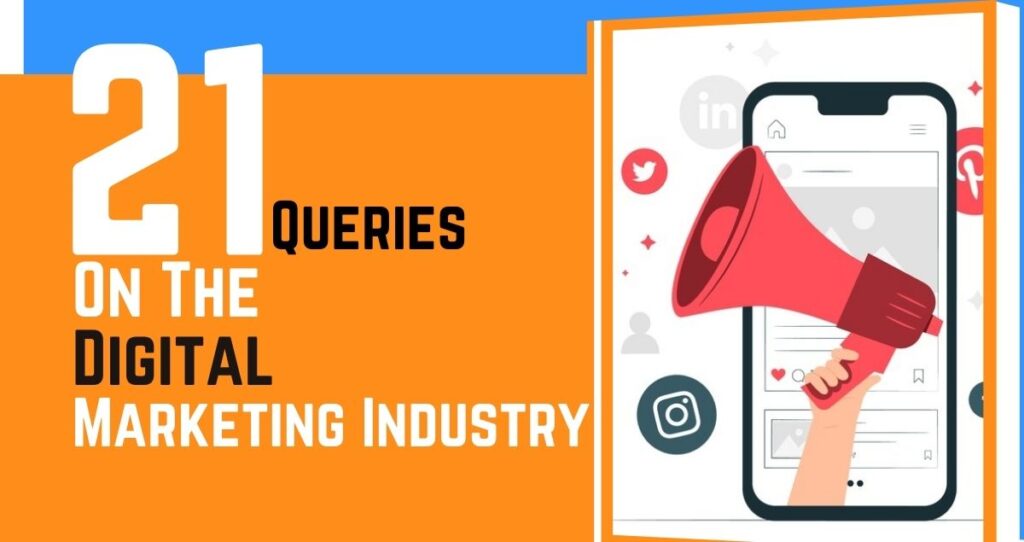

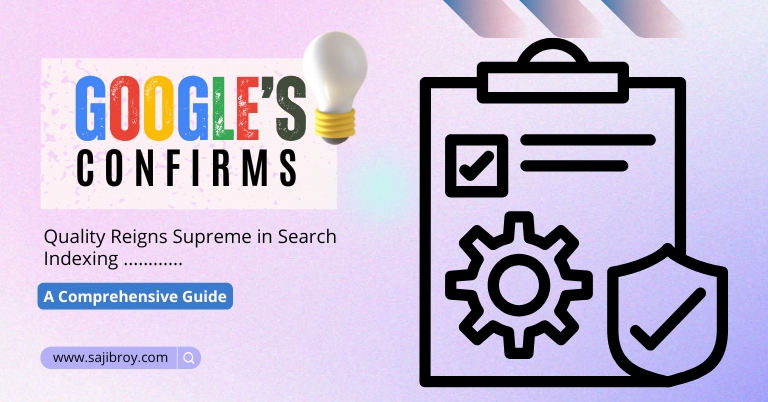



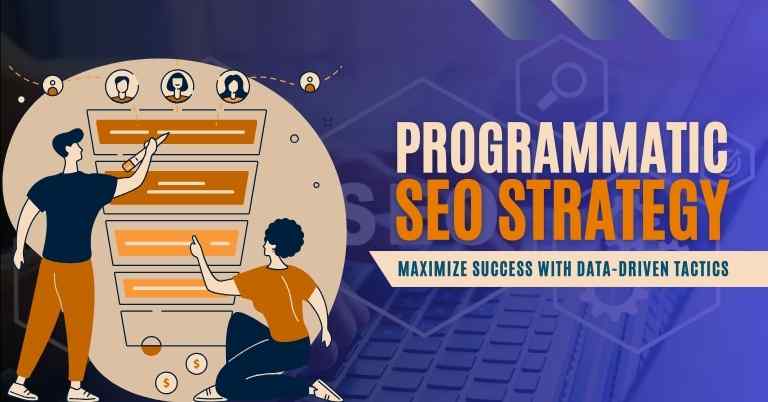



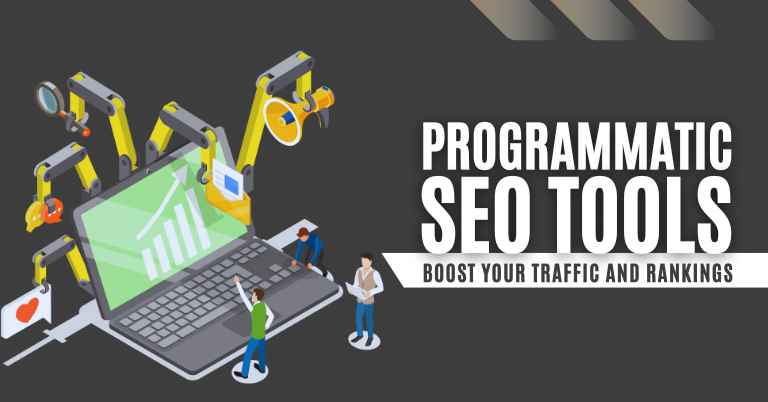

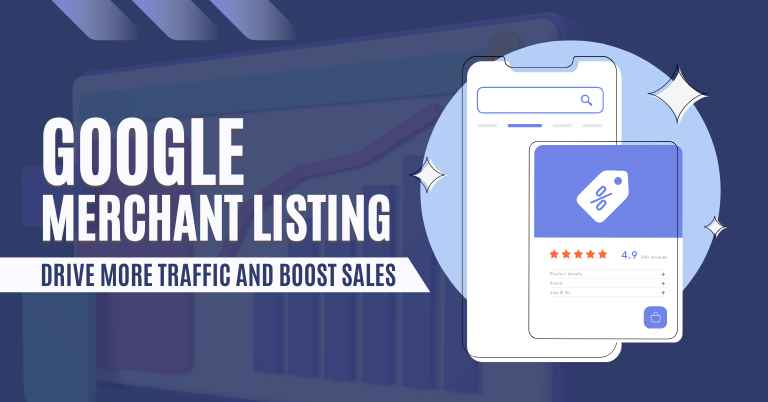
Really Amazing!